VW ID.4 VS VW Tayron – Specs, Efficiency & Price Comparison
Which model is the better choice – the VW ID.4 or the VW Tayron? We compare performance (340 HP vs 272 HP), boot capacity (543 L vs 885 L), efficiency (15.80 kWh vs 0.40 L), and of course, the price (34600 £ vs 39000 £).
Find out now which car fits your needs better!
The VW ID.4 (SUV) is powered by a Electric engine and comes with a Automatic transmission. In comparison, the VW Tayron (SUV) features a Petrol MHEV, Plugin Hybrid, Diesel or Petrol engine and a Automatic gearbox.
When it comes to boot capacity, the VW ID.4 offers 543 L, while the VW Tayron provides 885 L – depending on what matters most to you. If you’re looking for more power, you’ll need to decide whether the 340 HP of the VW ID.4 or the 272 HP of the VW Tayron suits your needs better.
There are also differences in efficiency: 15.80 kWh vs 0.40 L. In terms of price, the VW ID.4 starts at 34600 £, while the VW Tayron is available from 39000 £.
Compare all the key specs now and find out which model fits your lifestyle best!
In the competitive electric vehicle market, the VW ID.4 stands out with its spacious interior and innovative tech features, making it an excellent choice for families and tech enthusiasts alike. Meanwhile, the VW Tayron offers a more traditional SUV experience with a powerful engine lineup and a stylish design that appeals to those looking for a versatile all-rounder. Both models showcase Volkswagen's commitment to quality and performance, catering to different preferences in the ever-evolving automotive landscape.
VW ID.4
The VW ID.4 represents Volkswagen's commitment to the electric vehicle market, combining contemporary design with sustainability. Its spacious interior and intuitive technology make it an attractive choice for those seeking comfort and innovation in an eco-friendly package. With a focus on electric performance and practicality, this car is set to be a popular option among environmentally-conscious drivers.
details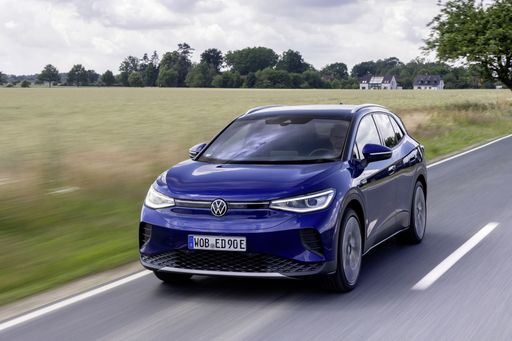 @ Volkswagen
@ Volkswagen
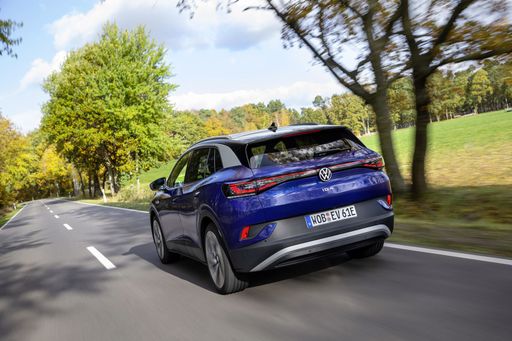 @ Volkswagen
@ Volkswagen
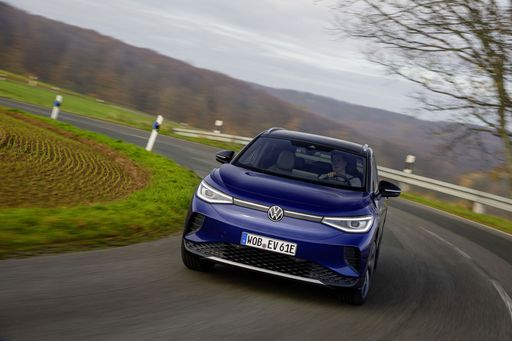 @ Volkswagen
@ Volkswagen
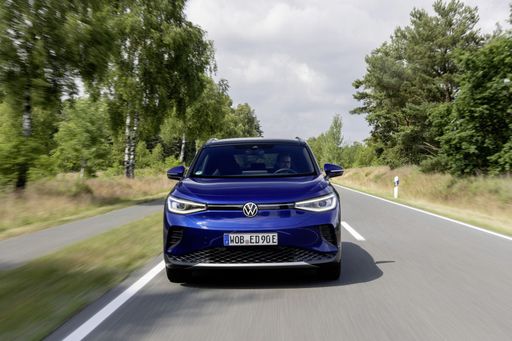 @ Volkswagen
@ Volkswagen
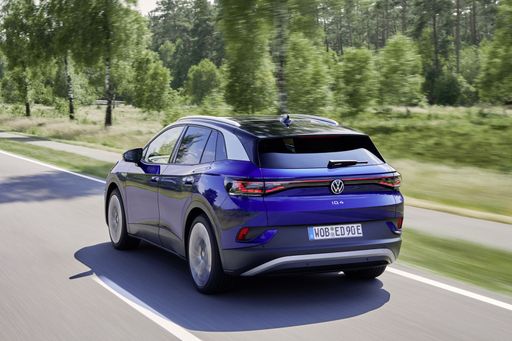 @ Volkswagen
@ Volkswagen
 @ Volkswagen
@ Volkswagen
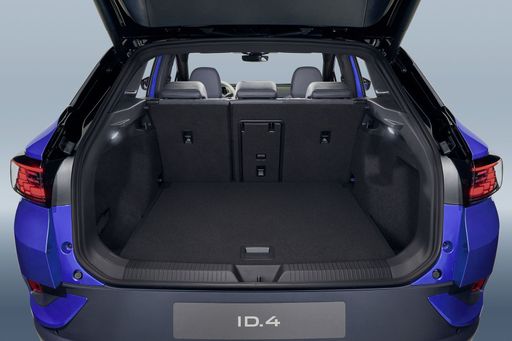 @ Volkswagen
@ Volkswagen
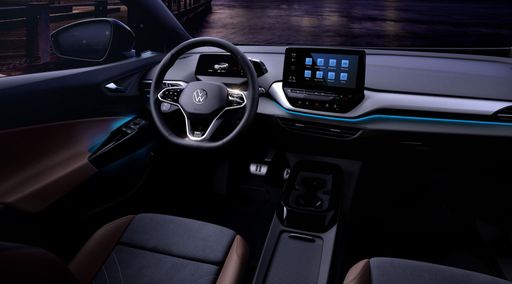 @ Volkswagen
@ Volkswagen
VW Tayron
The Tayron stands out as a stylish and versatile SUV that expertly blends form and function. With its spacious interior and modern design, it caters to families and adventure seekers alike, making every journey enjoyable. Equipped with advanced technology and safety features, the Tayron promises a driving experience that is both secure and exhilarating.
details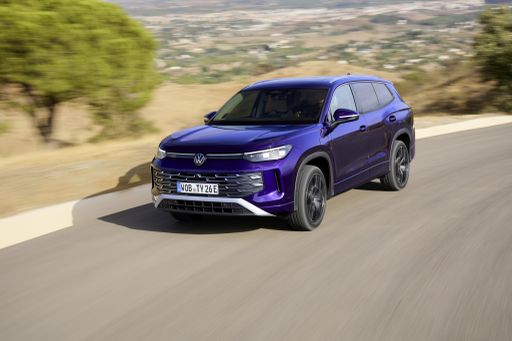 @ volkswagen-newsroom.com
@ volkswagen-newsroom.com
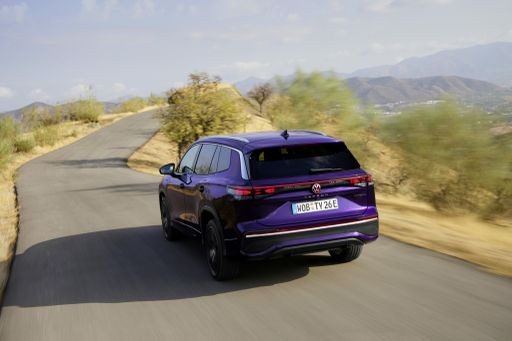 @ volkswagen-newsroom.com
@ volkswagen-newsroom.com
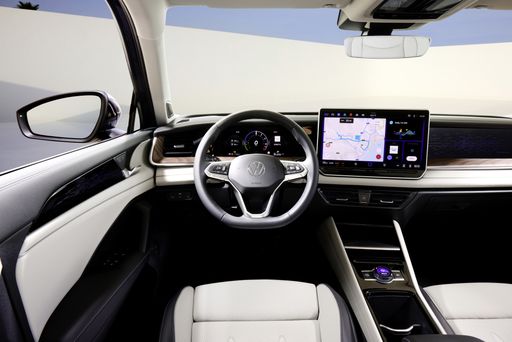 @ volkswagen-newsroom.com
@ volkswagen-newsroom.com
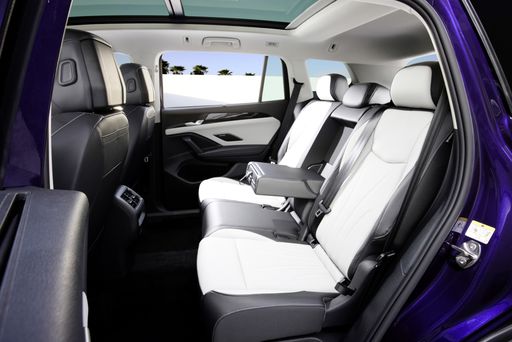 @ volkswagen-newsroom.com
@ volkswagen-newsroom.com
As the automotive industry continues to evolve, Volkswagen (VW) remains at the forefront of innovation, particularly in the SUV segment. In this article, we will compare two of VW's standout models in the SUV category: the electric ID.4 and the versatile Tayron. Each vehicle offers unique features and capabilities, making them strong contenders in their respective classes.
Powertrain and Performance
The VW ID.4 is an electric SUV that comes in multiple configurations, including rear-wheel drive and all-wheel drive options. It boasts impressive power outputs, with options ranging from 170 HP to a staggering 340 HP. With a torque peak of 679 Nm and an acceleration time of just 5.4 seconds for the top variant, the ID.4 is designed for exhilarating performance while maintaining an eco-friendly stature.
Conversely, the Tayron offers a combination of conventional petrol, diesel, and hybrid powertrains. With power outputs between 150 HP and 272 HP, the Tayron may not be as potent as the ID.4 in its most powerful form, but it still delivers commendable performance with a maximum torque of 400 Nm. The Tayron’s acceleration ranges from 7.3 seconds to 9.4 seconds, depending on the engine variant, showcasing its competitive edge in the SUV marketplace.
Fuel Efficiency and Electric Range
When considering efficiency, the ID.4 truly shines. With power consumption ranging from 15.8 to 16.8 kWh/100km and an electric range up to 572 km, it offers an outstanding option for those looking to reduce their carbon footprint without sacrificing range. The vehicle’s 77 kWh battery capacity provides ample juice for daily commutes and longer journeys alike.
On the other hand, the Tayron is geared more towards those who prefer traditional fuel sources but still wish to contemplate greener alternatives. Its hybrid variants achieve a fuel consumption as low as 0.4 L/100km in electric mode, while the diesel options stand at around 6.2 L/100km. However, its electric range is limited to approximately 126 km, making it less suited for extensive electric-only driving compared to the ID.4.
Interior Comfort and Practicality
Both SUVs provide spacious interiors with comfortable seating for five passengers. The ID.4 features a trunk capacity of 543 L, allowing for plenty of luggage space, while the Tayron surpasses this with a maximum capacity of 885 L. The Tayron’s larger cargo area makes it a more practical choice for families or those who frequently carry larger loads.
In terms of dimensions, the ID.4 measures 4584 mm in length and stands at 1634 mm high, offering a slightly more compact footprint. The Tayron, at 4792 mm and 1668 mm in height, provides a more robust presence on the road. Both models reflect VW's commitment to quality and comfort, featuring advanced infotainment systems and a host of safety technologies.
Technological Innovations
When it comes to technology, the ID.4 is equipped with VW's latest infotainment system, featuring a large touchscreen, voice recognition, and connected services to enhance the driving experience. It also incorporates cutting-edge driver-assistance features, including adaptive cruise control and lane-keeping assist, further elevating the safety and convenience levels.
The Tayron also boasts an impressive range of technology offerings, with its infotainment system centered around user-friendly interfaces. Furthermore, it offers a suite of safety features like emergency braking and blind-spot monitoring, which are becoming increasingly common in modern SUVs.
Conclusion
In conclusion, the comparison between the VW ID.4 and the VW Tayron highlights the diverse offerings available in the SUV segment from Volkswagen. The ID.4 stands out as a leader in the electric SUV market, with superior range and efficiency, while the Tayron caters to those who prefer the familiarity of traditional powertrains with the added bonus of hybrid options. Depending on individual needs — whether you prioritize eco-friendliness or practicality — both vehicles offer compelling choices to consider in today's ever-evolving automotive landscape.

|

|
|
|
|
Costs and Consumption |
|
|---|---|
|
Price
34600 - 46700 £
|
Price
39000 - 52600 £
|
|
Consumption L/100km
-
|
Consumption L/100km
0.4 - 7.8 L
|
|
Consumption kWh/100km
15.8 - 16.8 kWh
|
Consumption kWh/100km
-
|
|
Electric Range
357 - 572 km
|
Electric Range
117 - 126 km
|
|
Battery Capacity
52 - 77 kWh
|
Battery Capacity
19.70 kWh
|
|
co2
0 g/km
|
co2
9 - 177 g/km
|
|
Fuel tank capacity
-
|
Fuel tank capacity
45 - 58 L
|
Dimensions and Body |
|
|---|---|
|
Body Type
SUV
|
Body Type
SUV
|
|
Seats
5
|
Seats
5
|
|
Doors
5
|
Doors
5
|
|
Curb weight
1979 - 2261 kg
|
Curb weight
1682 - 1948 kg
|
|
Trunk capacity
543 L
|
Trunk capacity
705 - 885 L
|
|
Length
4582 - 4584 mm
|
Length
4792 mm
|
|
Width
1852 mm
|
Width
1853 - 1866 mm
|
|
Height
1619 - 1634 mm
|
Height
1666 - 1668 mm
|
|
Payload
509 - 541 kg
|
Payload
489 - 566 kg
|
Engine and Performance |
|
|---|---|
|
Engine Type
Electric
|
Engine Type
Petrol MHEV, Plugin Hybrid, Diesel, Petrol
|
|
Transmission
Automatic
|
Transmission
Automatic
|
|
Transmission Detail
-
|
Transmission Detail
Automat. Schaltgetriebe (Doppelkupplung)
|
|
Drive Type
Rear-Wheel Drive, All-Wheel Drive
|
Drive Type
Front-Wheel Drive, All-Wheel Drive
|
|
Power HP
170 - 340 HP
|
Power HP
150 - 272 HP
|
|
Acceleration 0-100km/h
5.4 - 9 s
|
Acceleration 0-100km/h
6.1 - 9.7 s
|
|
Max Speed
160 - 180 km/h
|
Max Speed
204 - 240 km/h
|
|
Torque
310 - 679 Nm
|
Torque
250 - 400 Nm
|
|
Number of Cylinders
-
|
Number of Cylinders
4
|
|
Power kW
125 - 250 kW
|
Power kW
110 - 200 kW
|
|
Engine capacity
-
|
Engine capacity
1498 - 1984 cm3
|
General |
|
|---|---|
|
Model Year
2023 - 2024
|
Model Year
2025
|
|
CO2 Efficiency Class
A
|
CO2 Efficiency Class
E, B, F, G
|
|
Brand
VW
|
Brand
VW
|
VW ID.4
The VW ID.4: A Leap into the Electric Era
As electric vehicles steadily capture the automotive market, the Volkswagen ID.4 stands as a testament to impressive innovation and functionality. Combining eco-friendly technology with the practicality of an SUV, the VW ID.4 is designed to appeal to both environmentally conscious drivers and those seeking versatility in their vehicle choice. In this article, we'll explore the significant technical features and innovations that make the ID.4 a remarkable option in the electric vehicle market.
Powertrain Options: Efficiency Meets Performance
The Volkswagen ID.4 offers a range of powertrain options to suit various driving preferences. With power outputs ranging from 170 to 340 PS and torque figures between 310 and 679 Nm, the ID.4 provides a versatile driving experience. Whether you opt for the responsive rear-wheel drive or the enhanced stability of the all-wheel-drive configuration, each model guarantees smooth and efficient performance.
With an emphasis on efficiency, the ID.4 boasts a consumption rate between 15.8 and 16.8 kWh/100km, making it an economical choice for those mindful of their energy usage. Furthermore, the ID.4 offers a robust driving range, with potential distances reaching up to 572 km, reducing the need for frequent recharging and allowing for longer journeys with peace of mind.
Charging and Battery Technology
Efficiency isn't the only strong suit of the ID.4—the battery technology is equally impressive. With a battery capacity ranging from 52 to 77 kWh, Volkswagen ensures that drivers can match their vehicle choice to their lifestyle needs. Charging is straightforward and adaptable, providing convenience whether at home or on the move.
The ID.4 is designed for compatibility with a variety of charging infrastructure, ensuring rapid charging times and minimal downtime. This thoughtful engineering ensures that drivers spend more time on the road and less time waiting at charging stations.
Design and Practicality: An SUV with a Mission
The VW ID.4 embraces its SUV heritage, offering ample interior space and practicality without compromising on style. With its dimensions ranging from 4582 to 4584 mm in length, 1852 mm in width, and up to 1634 mm in height, the ID.4 ensures a comfortable and spacious environment for up to five passengers.
Additionally, the ID.4 provides a generous boot space of 543 litres, making it ideal for families or those with an active lifestyle requiring extra storage. The careful consideration in design extends to weight efficiency, with the vehicle's own weight between 1979 and 2261 kg helping to enhance its overall drive dynamics and efficiency.
Innovative Features and Technology
Volkswagen has equipped the ID.4 with a suite of advanced technological features designed to enhance both safety and driving enjoyment. These features include intuitive infotainment systems, driver-assistance technologies, and connectivity options tailored to modern expectations.
One standout attribute of the ID.4 is its commitment to sustainability with a CO2 efficiency class of A, demonstrating Volkswagen's dedication to reducing environmental impact without sacrificing performance or functionality.
Conclusion: The Future is Electric
The VW ID.4 is a shining example of how traditional automotive excellence adapts to contemporary demands for sustainability and efficiency. Whether you are an enthusiastic early adopter of electric vehicles or simply someone in search of a reliable and advanced SUV, the ID.4 offers a compelling package designed for the future.
For anyone ready to embrace the electric revolution, the Volkswagen ID.4 represents a significant step forward—a combination of forward-thinking technology, efficient design, and an emphasis on practicality. This makes the ID.4 a worthy consideration for any discerning driver looking to invest in their next vehicle.
VW Tayron
Introducing the VW Tayron: Where Innovation Meets Performance
The VW Tayron is making waves in the SUV market with its cutting-edge technology, impressive performance specifications, and versatile engine options, catering to a diverse range of drivers. As a compact SUV, the Tayron perfectly balances functionality and style, making it an attractive choice for both urban and adventurous lifestyles. Let's dive into the technical aspects and innovations that set the Tayron apart.
Engine Options and Performance
The Tayron is available in several configurations, each engineered to deliver a thrilling driving experience. Among the most notable is the 1.5 eTSI OPF Petrol MHEV engine, boasting an output of 150 horsepower. This variant showcases a superb balance between power and efficiency, achieving an impressive fuel consumption of just 6.2 liters per 100 kilometers.
Additionally, the Tayron offers hybrid options, such as the 1.5 eHybrid OPF Plugin Hybrid. This model can produce up to 204 horsepower, with an electric range of 126 kilometers, allowing drivers to experience the benefits of electric motoring without sacrificing performance. For those who prefer diesel, the 2.0 TDI SCR Diesel engine delivers a robust 193 horsepower, paired with either front-wheel or all-wheel drive configurations. This versatility ensures that there's a suitable option for every type of driver.
Cutting-Edge Technology and Features
The Tayron is equipped with an array of advanced technologies designed to enhance comfort, safety, and connectivity. Its automatic transmission features a dual-clutch system, providing smooth gear shifts and optimal power delivery. The vehicle's driving dynamics are further improved by the availability of Dynamic Chassis Control, allowing drivers to select their preferred driving mode for any given scenario.
Inside, the Tayron boasts a spacious cabin with ample seating for five, complemented by modern design elements and high-quality materials. The trunk capacity reaches up to 885 liters, making it ideal for family outings or long road trips. Furthermore, the integration of the latest infotainment system ensures that drivers remain connected on the go, offering seamless smartphone compatibility through Apple CarPlay and Android Auto.
Safety Comes First
Safety is paramount in the Tayron's design. Equipped with state-of-the-art driver assistance systems, the SUV helps prevent accidents and enhances overall road safety. Features such as adaptive cruise control, blind-spot monitoring, and lane-keeping assist are just some of the innovative safety elements offered in the Tayron. With its comprehensive safety suite, the Tayron provides peace of mind for both drivers and passengers alike.
A Sustainable Future with the Tayron
As environmental awareness continues to grow, the VW Tayron contributes to a more sustainable future through its hybrid variants that feature lower emissions. For instance, the 1.5 eHybrid OPF Plugin Hybrid achieves a CO2 efficiency class of B, demonstrating VW’s commitment to eco-friendly mobility without compromising performance. This shift toward sustainability is becoming increasingly significant for consumers looking for responsible yet fun driving experiences.
Conclusion: The VW Tayron Stands Out
The VW Tayron is a remarkable SUV that encapsulates the perfect blend of performance, technology, and sustainability. With its diverse range of engine options, advanced features, and focus on safety, it is tailored to meet the needs of modern drivers. Whether you opt for the petrol, diesel, or hybrid model, the Tayron is sure to impress with its dynamic capabilities and stylish design, solidifying its place in the competitive automotive landscape.
The prices and data displayed are estimates based on German list prices and may vary by country. This information is not legally binding.
